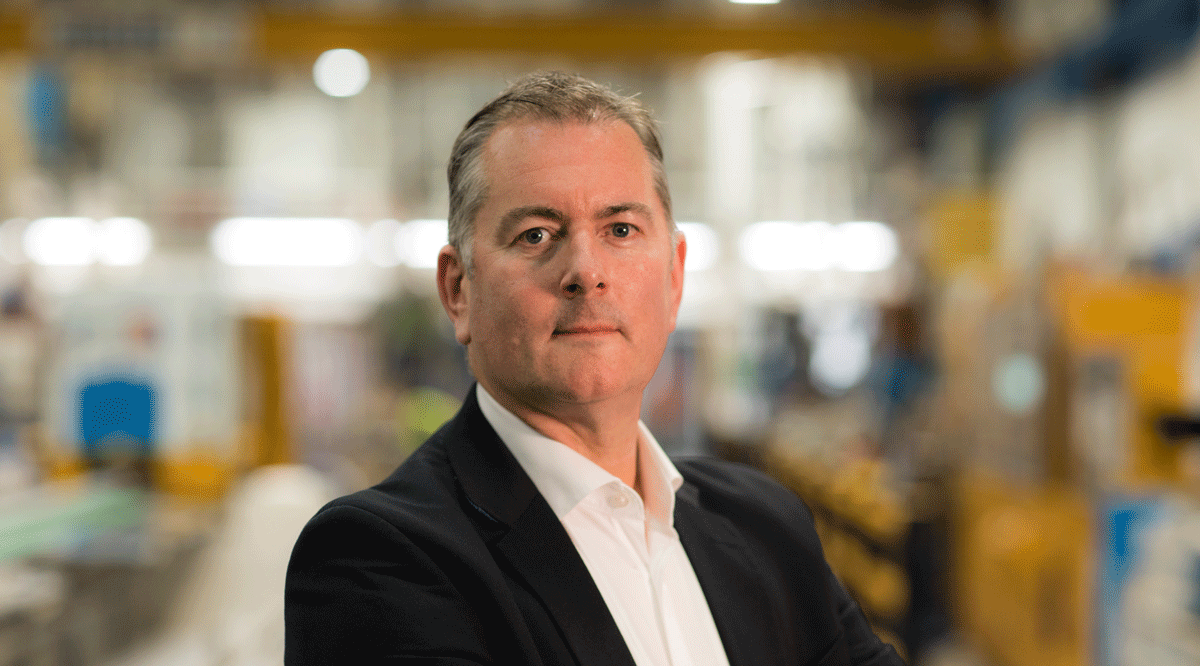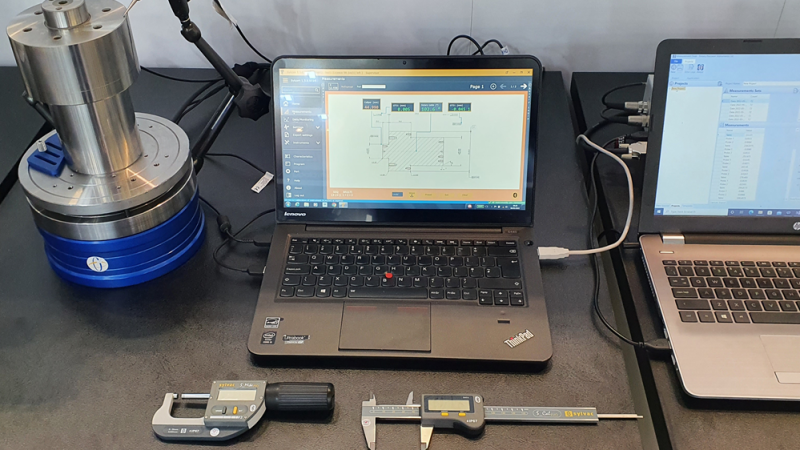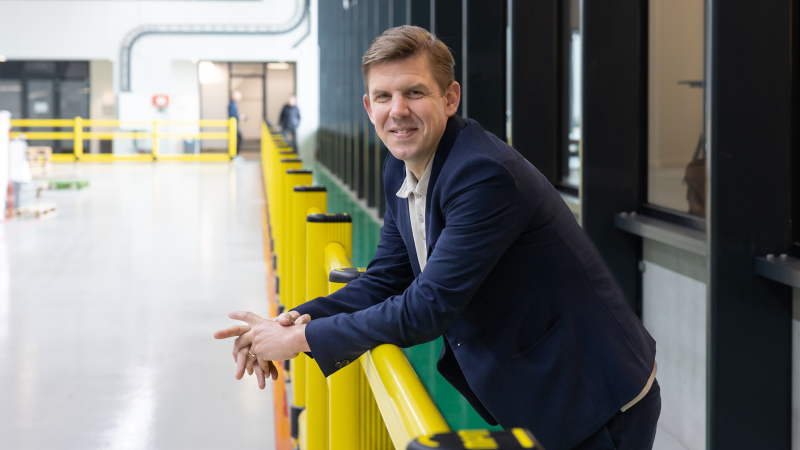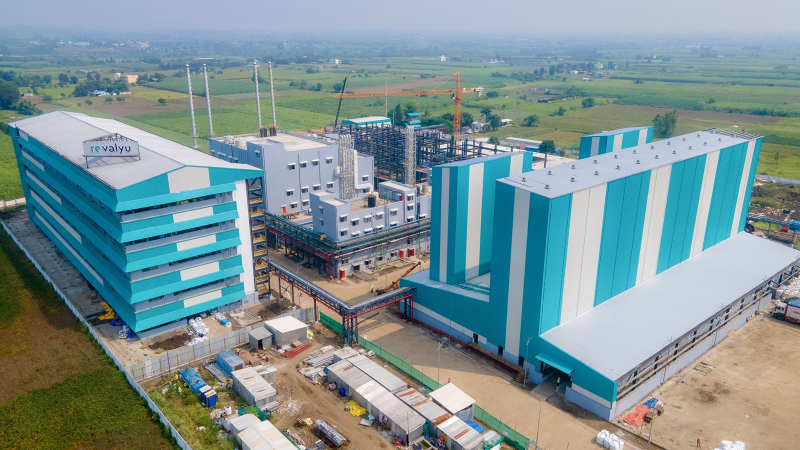VEKA has been leading the global development of PVCu window systems for over 50 years, through design, innovation, and customer focus. Headquartered in Germany and family-owned since its inception, VEKA has been offering its partners a heritage of quality, efficiency, reliability, and stability.
What started as a small family business with 8 people in 1969 in the small German town of Sendenhorst, has become the world’s largest manufacturer of extruded PVCu products, with a turnover in excess of € 1.5 billion and a network of subsidiaries in over 40 countries across Europe, Asia, America and Russia, employing around 7,000 people.
“VEKA continues to be a family business, with the second generation of the founder family now actively leading the Group, continuing the family legacy and commitments. It is the family culture to have a long-term view of business development and maximise retention of earnings to reinvest, that is the foundation for business stability and our growing market position,” says Neil Evans, Managing Director of the UK subsidiary of the business, VEKA Plc.
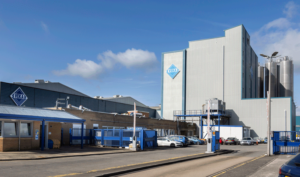 Leader in the British market
Leader in the British market
He explains that VEKA established a manufacturing presence in the UK in 1986 and grew rapidly through successful acquisition of a larger competitor in 2011 – an acquisition that gave the global organisation confidence to then pursue a much bigger acquisition in mainland Europe. Today the British company employs around 500 people across its Burnley extrusion and lamination site and its recently acquired recycling site in Wellingborough.
Its profile suites, sold under the VEKA and Halo brands, set new standards in the industry, for both technical excellence and aesthetic appeal. “We effectively design, extrude and laminate window profiles,” Evans describes the core business. “These are then sold to fabricators who manufacture finished window products in line with their customers’ needs. This makes us a bit unusual when compared to our competitors who may also manufacture and sell windows as their finished product. We will not enter that space. It is where our customers are, and we will not compete with them.”
Speaking about the company’s positioning, he explains that VEKA operates typically towards the upper end of the market. “German heritage backed by British craftsmanship has worked well for us. Our business is very much about high technical standards and know-how, with an uncompromising focus on product quality.”
Given that British window systems differ from those used in Europe, the Burnley site’s product suites are designed solely with the UK market in mind, notes Evans, affirming that this degree of independence has the full support of the German owners. “Local management is empowered to make fast, confident decisions to ensure that while the products and culture are true to the VEKA global approach, they are also right for the local market and employees.”
Expanded presence.
VEKA has experienced impressive growth over the last few years. Just in the past eight months, the company has increased its market share by 20 percentage points because of major new business activity resulting from the complete withdrawal from the market of a competitor and securing a number of their significant customers.
“We were able to differentiate ourselves from other competitors who also were seeking that business, through the quality of product and the impressive VEKA team’s customer service. One of our new customers told me that we have done more for them in six months than their previous supplier had in over 20 years. That speaks volumes for our focus.”
Earlier this year, VEKA Plc further expanded its operation by becoming the owner of VEKA Recycling, previously run independently, thus closing the circular loop. The advanced UK recycling plant is planning to process over 20,000 tonnes of used window frames and post-industrial offcuts this year and turn them into high-quality pellets for reuse in the core of products. It is expected that the proportion of recycled material in new profiles will exceed 30% in 2024, thereby contributing to a significant CO2 reduction.
“The material can be recycled up to 10 times with the lifespan of a window being between 20 and 30 years,” Evans explains, adding that PVCu window profiles are largely maintenance free and built to last, ensuring that the final manufactured window product can have a positive impact. “As they also have a significant impact on the energy performance of a home, their role in contributing to a lower carbon footprint is significant.”
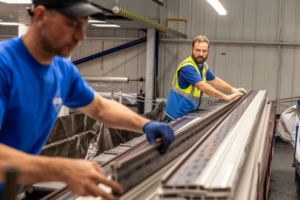 Great product, best service
Great product, best service
The company is now not only focusing on consolidating these expanded business activities but is also preparing a major event – the launch of a new product, the result of three years of designing, planning, and manufacturing, to be introduced to the market in 2024. “We have received a highly positive response from customers. The product will be a true game changer, transforming the aesthetics of window and door products whilst providing the highest levels of technical performance. We believe that it will set the standard of what a window should look like over the next 10 years.”
Given the recent developments, it looks like VEKA is transforming its shape and form – the management is now also looking at diversifying its core competence of extrusion and lamination for unrelated product types. “The multi-million-pound new product launch, together with seeking diverse new roles in the business brings both opportunities and challenges. We need traction in our specialist products division, finding the right opportunities with the right partners. We also need to champion the recycling message and the role all stakeholders can play in building a reliable circular economy.”
Possible acquisitions are also in the pipeline, with the full support of the parent company, he says. “We are encouraged to be entrepreneurial; we have the freedom to operate. The owners trust us implicitly to run the business to the best of our ability. If the right opportunity comes along, we move quickly.”
With these new initiatives, the company is ready to embark on a continuous growth phase, to outperform where the market would naturally take it, reflects Evans. “We are set to sharpen our focus on all aspects of our partnerships with our customers and on our service offering. We will also strive to maximise the impact from our product launch and ensure that we have one of the most effective and efficient recycling plants in the world. We have achieved major growth in recent times, and we are determined to be better, delivering great products and the best possible customer service.”
